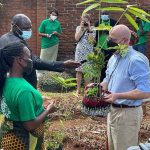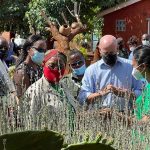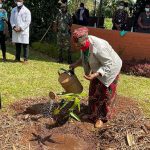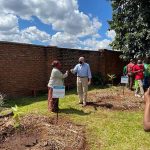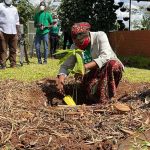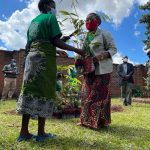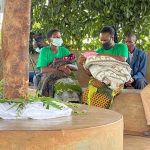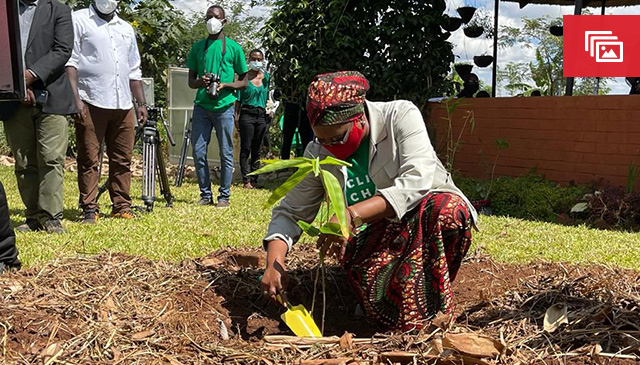
Texas Children’s Global Health partners at the Area 25 Health Centre in Malawi planted giant bamboo seedlings in its permaculture garden to recognize Earth Day, and to celebrate the lasting connections between human and environmental health.
An average of 20 babies are delivered each day at the health centre in the Malawian capital city of Lilongwe, where Texas Children’s and Baylor College of Medicine launched a Global Women’s Health program in 2012 in partnership with the Ministry of Health of Malawi and Baylor Foundation Malawi.
With a lack of access to health care services and limited resources in many settings, Malawian women experience 675 deaths per 100,000 live births; in the United States, the ratio is 14 deaths per 100,000 births. Texas Children’s Global Health is working to improve the odds for Malawian moms through transformative programs that benefit thousands of women and babies.
One such effort is the Permaculture Program at Area 25, which focuses on establishing a safe, nurturing environment for all patients receiving care at the facility – particularly pregnant women staying at the maternity waiting home. The vibrant permaculture garden is designed as a human-centered landscape, and based on a system of sustainable agriculture that promotes harmony with the local environment and natural ecosystems.
For Earth Day, Malawi Minister of Forestry and Natural Resources Nancy Tembo and U.S. Ambassador to Malawi Robert Scott joined health centre officials in the permaculture garden for a symbolic planting of giant bamboo. They also distributed seedlings to patients, which they’ve done for more than 3 years.
The distribution supports environmental stewardship by creating a relationship between the mother, her child and the seedlings she takes home. As the child grows, so do the plants, providing the family with new sources of food and firewood.
“The symbolic planting of the bamboos is a manifestation of the ministry’s commitment to healing the earth, using bamboo as a candidate species for landscape restoration and improved livelihoods,” Tembo said after the event.
Through the USAID Agricultural Diversification Project, the permaculture garden at Area 25 also supports nutrition and productivity. The space is a demonstration site for soya milk and mini drip kits, as well as drip irrigation and distribution of PICS bags to patients that allow for storage of grains without the use of insecticide.
Texas Children’s Global Health Network is the largest provider of pediatric HIV care in the world, with an expanded scope that also includes tuberculosis, malnutrition, Sickle Cell Disease, oncology, cardiology, emergency medicine, surgery, anesthesiology and maternal health.


